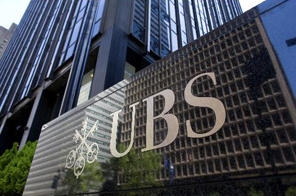Bank agreement expected to scare US tax dodgers
WASHINGTON: An agreement by a major Swiss bank to disclose the identities of thousands of Americans suspected of hiding assets has U.S. tax advisers bracing for a stampede of wealthy tax dodgers looking to come clean.
The U.S. and Switzerland finalized an agreement Wednesday in which the Internal Revenue Service will receive details on 4,450 UBS AG accounts suspected of holding undeclared assets from American customers.
The agreement pierces Switzerland's famed tradition of banking secrecy, and is expected to prod thousands more UBS clients in America to voluntarily disclose their financial details to the IRS, lest they be pursued later.
"What this does is creates an overwhelming incentive for virtually every one of those account holders to come forward," said Peter Zeidenberg, a litigation partner at the law firm DLA Piper in Washington. "If there had been a steady stream, there is now going to be an absolute flood."
The agreement is part of the Obama administration's stepped-up efforts to go after wealthy tax dodgers hiding assets in offshore accounts, an initiative that promises to yield many more prosecutions, IRS Commissioner Doug Shulman said.
UBS has an estimated 52,000 accounts held by U.S. customers. The IRS chief said the 4,450 accounts being identified were the ones most suspected of containing undeclared assets. Many of the rest are held by people who have complied with the law and paid their taxes, Shulman said.
The IRS long has had a policy that certain tax evaders who come forward before they are contacted by the agency usually can avoid jail time as long as they agree to pay back taxes, interest and hefty penalties.
In March, the IRS began a six-month amnesty program that sweetened the offer with reduced penalties for people with undeclared assets. Shulman said the response has been unprecedented, though he declined to say how many people have applied.
Tax advisers at several U.S. firms said they already are seeing many more customers with undeclared assets seeking information about their legal options.
It is not illegal for Americans to have overseas accounts, but they must pay U.S. taxes on the money. Also, there are special reporting requirements for accounts of more than $10,000.
Robert McKenzie, a Chicago-based lawyer who represents dozens of American clients of Swiss banks, said some will still try to avoid the taxman.
"Some will say, 'Let's wait and see if I get a letter,'" said McKenzie. However, he said, waiting too long "is really playing a game with the devil."
Shulman said UBS customers are free to take advantage of the disclosure program as long as they come forward before the amnesty program expires Sept. 23 — and before the IRS receives their name from UBS.
"The letter they receive from the bank will not disqualify them from coming forward to the IRS under our voluntary disclosure program," Shulman said. "But once the Swiss government sends us the name, all bets are off."
The Swiss, known worldwide for keeping bank accounts secret, said UBS had no real choice in turning over the names.
Justice Minister Eveline Widmer-Schlumpf told a news conference in Bern that the deal lifts the threat of criminal prosecution against UBS, which not only would have endangered the bank's existence but would have dealt a severe blow to the Alpine nation's economy.
"There was no alternative to this solution," she said.
The agreement includes several measures favorable to the Swiss — and gives the clients a chance to get right with the IRS.
Instead of releasing the names directly to U.S. authorities, UBS will turn them over to the Swiss Federal Tax Administration. Account holders will then be able to appeal their release to the IRS before Switzerland's Federal Administrative Court.
However, U.S. authorities will be notified of the appeals, giving them access to information about account holders. It is expected to take several months for the first names reach the IRS, and court proceedings could prolong the process.






